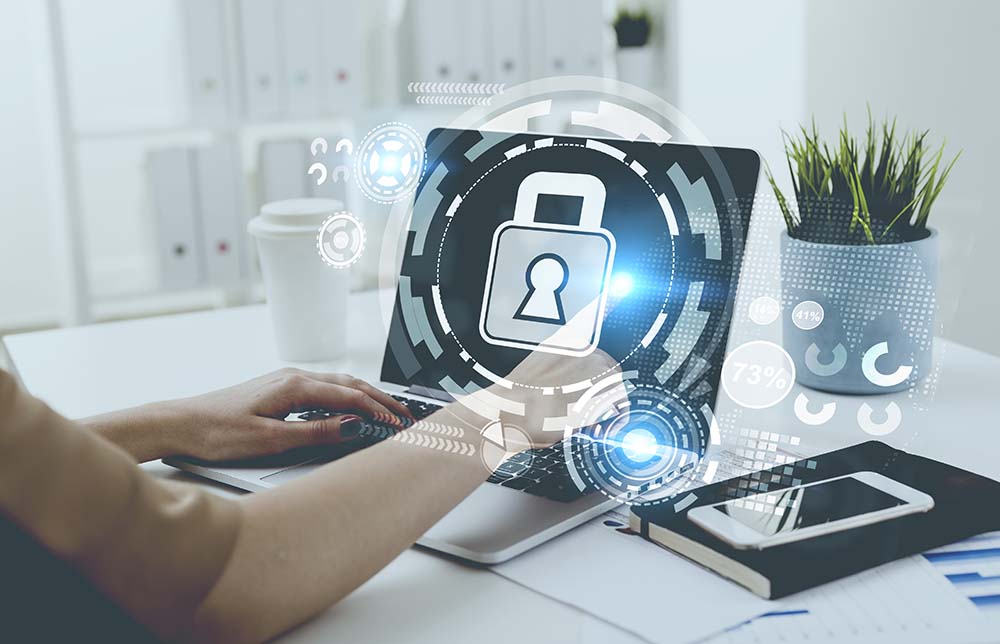DCCU Routing # 251483311
Important Information
DCCU will never contact you by phone or email and ask for your Social Security Number, PIN, verification code, or passwords. This information is personal and confidential to you, and under no circumstances would we require this information over the phone, via text message, email, or by any other channel. If you receive a phone call asking for this information, please hang up and call DCCU immediately at 540.946.3200. If you believe you are a victim of fraud or scam, contact the police in your area and any financial institution involved.
Fraud Alerts
Ways to Protect Your DCCU Account
DCCU will never text or call you to request the following information:
- Account Number
- Online Banking Password
- Social Security Number
- Mother's Maiden Name
- Authorization (Text/MFA) Codes
If you suspect fraudulent activity on any of your accounts, contact us immediately through one of our official channels.
Don't Respond to Unknown Communications
If you don't recognize the number, don't answer the call or text.
Monitor Your Account Activity
Review your bank statements and transactions regularly to catch any unexpected changes on your accounts.
Avoid Pressure Tactics
DCCU will never rush you or pressure you to provide information. Scammers often use scare tactics to make you act quickly.
Protect Yourself Online
Be Wary of Social Media Quizzes
Social media quizzes are a seemingly fun and carefree way to pass time, but these quizzes may be designed to collect your sensitive information in an attempt to use it to gain access to your account information. Here are a few things to consider before sharing personal information online:
- Be skeptical – Verify the source of the quiz before you answer any questions.
- Adjust privacy settings – Be mindful of who you are sharing your information with when completing online quizzes.
- Remove personal details from your social media profiles.
- Don’t give answers to common security questions – Be way of any quiz that asks you questions like the street you grew up on, mother’s maiden name, etc.
- Monitor friend requests – Don’t accept friend requests from people you don’t know.
Not all social media quizzes are data collection scams, but you should still proceed with caution before sharing any personal details online. For more information, please visit the Better Business Bureau’s website.
Protect Yourself Against Employment Scams
DCCU is seeing an increase in members being victimized by employment scams. During the pandemic, more people began working from home or seeking work through online avenues. As a result, we have seen an uptick in the number of members being taken advantage of through employment scams, two in particular.
Overpayment Scam
This type of fraud involves business owners who sell a good or service, and are paid via fraudulent check by the individual. Often, the checks are written for an amount well over the price of the goods or services, and the individual will request the business owner return part of the funds via channels like payment applications (such as Cashapp or Venmo), cashier’s checks, or even cash. Requesting money back is a huge red flag. Some of the industries hit hardest by these sorts of scams offer services requiring payment for materials upfront, such as construction, painting, masonry, etc. Not only is the individual at a loss for any money returned to the scammer, they are also usually stuck with any materials they purchased.
Indeed Search Scam
Aptly named for the website where the scam originated, it preys upon individuals desperate for a job. The deception begins with the scammer impersonating a legitimate business or employer in an effort to obtain confidential information from prospective applicants. Using a fake profile, the individual will attempt to establish contact with any prospective applicants. Once they have made contact, they will generally send out tax forms or similar documents to be filled out and sent back to satisfy their “background check” requirements. These forms often ask for social security numbers, date of birth, addresses, full names, and more, and are nothing more than a ploy to steal your identity. This type of scam can be increasingly difficult to recover from as the effects of identity theft can persist for years after the initial occurrence. To better protect yourself against this type of fraud, never give out your personal information to any business or individual you do not trust.
To help avoid these types of scams, here are a few things to keep in mind:
- Urgency is often manufactured – Many scammers will attempt to defraud you by creating a false sense of urgency to get you to perform the task they have requested. This is a tactic to get you to agree faster without asking appropriate questions about their requests.
- Make sure the details line up - If something seems off about the company you are receiving messages from on Indeed, double check the information you’ve been given. Doing some research could expose the “company” as fraudulent, and potentially save you money and the headache of having your identity stolen.
- Don’t answer demands – Many scammers will threaten to take legal action if you do not meet their demands, but no trustworthy business or individual would ever require payment on the spot without question.
- Trust your intuition – Your intuition is often right. If something seems off, it probably is. Exercise caution to better protect your identity and finances from potential scams.
It is much easier to prevent a scam than it is to recover from one, so it is important that you remain diligent in protecting yourself. If you believe you may have been a victim of one of these scams, please contact DCCU right away at 800.845.8085.
Four Warning Signs of a Scam
Scams have become an unfortunate reality, but recognizing these common signs could help you avoid becoming a victim of one.
They pretend to be from an organization you know.
Scammers often pretend to be from an organization that you are familiar with, such as the Social Security Administration, Internal Revenue Service, Medicare, etc. They may even pretend to be an authorized representative from a utility company, financial institution, or even a charity asking for donations in an attempt to defraud their victims.
They say there's a problem or prize.
Scammers often say that there's a problem or prize. They may say that you are in trouble with the government or that you owe money. They may even say that you won a lottery or sweepstakes, but are required to pay a fee to collect it first.
They pressure you to act immediately.
Scammers will often pressure you to act immediately, and there will likely be an element of urgency to their tone. They might threaten to arrest you, sue you, or take away your driver's license.
They tell you to pay in a specific way.
Scammers will tell you to pay in a specific way. Often, they will insist you pay by sending money through a payment application (such as CashApp or Venmo), or by putting the money on a gift card and sending them the code off the back. Some will even try to defraud you through fraudulent checks.
Helpful Tips to Avoid a Scam:
- Block unwanted calls and text messages, especially from unfamiliar numbers
- Don't give personal or financial information in response to a request you didn't expect
- Resist the urge to act immediately
- Pay attention to how scammers tell you to pay
- Talk with someone you trust about the incident
Because it is much easier to prevent a scam than it is to restore what has been lost to a scam, it is important to be aware of common warning signs. This way, you will be able to better protect yourself, your privacy, and your finances. If you believe you have been the victim of a scam, please contact DCCU right away at 800.845.8085.
What is Phishing?
Phishing is the act of sending an email to a user falsely claiming to be an established legitimate enterprise in an attempt to scam the user into surrendering private information that may be used for fraud or identity theft. The email directs the user to visit a website where they are asked to update personal information such as: passwords, Credit/Debit Card info, Social Security numbers, and the Credit Union/Bank account numbers that the legitimate organization already has. This website, however, is a spoof and set up only to steal the user’s information.
Helpful Tips
- Make sure you are running an up to date and supported operating system
- Use antivirus software on your computer
- Do not click links, or respond to emails that appear suspicious
- Never enter your username and password into a website you arrived at my clicking a link in your email
If you receive an email which you think is phishing, stating it’s from DCCU, please forward the entire email to abuse@mydccu.com. This will help us shut the site down faster.
Smishing
Smishing is a form of phishing where SMS text messages are used to initiate contact with an individual in an attempt to steal their banking or other sensitive information. These messages almost always include links to a fake website impersonating an actual institution, such as a bank or government agency. The fake website, also called a spoof, then prompts the individual to enter their usernames, passwords, addresses, phone numbers, email addresses, banking account information, social security numbers, and more. Once an individual has entered this information, the scammer has access to everything provided.
As a reminder, text messages generated by DCCU will never request your username or password information for Online Banking and will never contain a clickable link. If you think you may have experienced a smishing attempt or feel your information has been compromised, please email fraud@mydccu.com or call us at 800-245-8085 right away.
Personal Security
Counterfeit Checks
If you can answer yes to any of the following questions involving a check you are about to deposit, please contact us immediately.
- Are the check proceeds for an item you sold on the Internet such as a car, boat, jewelry, etc.?
- Is the amount of the check more than the selling price of the item?
- Have you been instructed to wire funds out of the country as soon as possible?
- Is the check from an individual you have communicated with via email?
- Is the check drawn on a business or individual different from the person buying your item?
- Have you been informed that you were the winner in a lottery that you did not enter?
- Have you been asked to assist in the distribution of money from another country?
Identity Theft
DCCU is dedicated to keeping our members’ information safe and secure. Identity theft can happen to anyone. Identity theft is when someone falsely used your name and personal information to get a loan, open a Credit Card or attempts to access information from your financial account. To ensure that you do not become a victim of identity theft, follow the simple rules below:
- Do not give out personal information over the phone, email, or text message
- Do not carry your social security card with you
- Place passwords on your accounts for added security
- Shred material that contains any of your personal information
- Do not print your social security number on your checks
- Check your DCCU statements regularly for accuracy
- Use security software on your home computer
- Carry only Credit Cards you use
- Review your credit report regularly. Federal law requires that each of the three credit bureaus (Equifax, Experian, and Trans Union) provide one free credit report per year to individuals upon request
Elder Financial Abuse
Elder Financial Abuse is the improper use of an older person’s funds or property. This abuse can be perpetrated by people they know, or people they don’t know and it can happen in many different ways.
Here are some warning signs:
- Depleted bank accounts
- Increase in bank frees
- Unpaid bills
- New acquaintances
- Missing possessions
- Loans being moved to collections
- Out of the ordinary cash withdrawals and transfers
- Sharp increase in spending habits
- Sudden liquidation of assets
Additional Resources:

Tips for Traveling with Your Card
Traveling can be a hassle. We want to make it easier for you! Below are some helpful tips for traveling with your DCCU Debit and/or Credit Cards. To avoid inconvenience while traveling, notify us in advance of your plans to prevent unnecessary restrictions being placed on your card(s).
Before You Leave
Travel Notes: Maximize your travel experience and help DCCU to better identify and protect against unauthorized transactions on your debit or credit card by adding a Travel Note before you leave. Add or change your Travel Note 24/7 through the Mobile App or Online Banking.
Fraud Alerts: Add an extra layer of account protection and quickly identify potentially fraudulent transactions with DCCU’s Automated Fraud Alerts. Learn more about Automated Fraud Alerts here.
While Traveling
- Be sure you know your PIN so you can access ATMs
- If you have any problems using a DCCU card while out of the country, contact our toll free overseas numbers for cardholder services.
Belgium: 0200.11.766
Canada: 1.800.654.7728
France: 0800.90.1615
Germany: 0130810002
Guam: 800.654.7728
Italy: 800.897.089
Japan: 0531.11.1727
Mexico: 00.1.800.336.7728
Panama: 00.1.800.111.0038
Philippines: 1800.1.111.9081
Spain: 900.99.1164
United Kingdom: 0.800897330
MasterCard Collect Number: 314.542.7111
VISA Collect Number: 410.581.9994
- There are no foreign transaction fees that are passed onto the card at this time
- To report a lost or stolen card, contact us immediately
Debit: 844.231.2220
Credit: 844.231.2221




Protect Yourself from Social Engineering
Social engineering is the act of tricking someone into disclosing a piece of valuable information such as a username, password, credit card number, or social security number. These attacks take advantage of human vulnerabilities such as emotions, trust, or habits in order to convince individuals to take action such as clicking a fraudulent link, visiting a malicious website, or sending unrecoverable funds to someone (often outside the country).
Hallmarks of Social Engineering Attacks:
What You Can Do to Protect Yourself:
Red Flags: